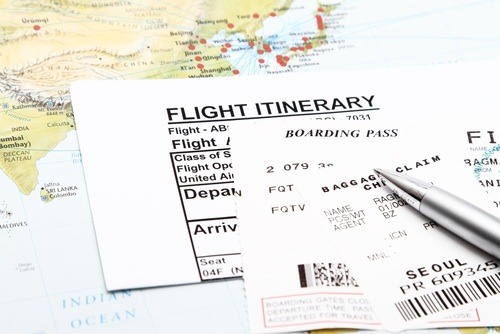Presenting advice on navigating visa conditions and different cultures and languages when conducting business internationally.
Whether you have gone on numerous affordable short haul holidays or have travelled far and wide, if you really want to educate yourself about the world and experience another culture, than the best way is to live and work in another country. Thanks to more and more affordable flights to different parts of the world, increased cooperation between governments, technological advancements in visa processing, and the abundance of online resources, finding work in another country is not as hard as it once was.
Read the visa fine print
Depending on what country you plan on moving too, there may be a host of different working visas available to you. Particularly if you are youngish or have recently graduated, you may find there are a number of possible options available.
It’s important to understand the conditions around each of the available visas. Some visa types might be great short-term options, but not count for much if you choose to migrate more permanently later. Often countries will also make special allowances for people in certain fields if there is a demand. Don’t think that such jobs are all professional services either; tradespeople, or positions such as bakers, chefs, hairdressers etc. have been known to crop up on skills-shortage lists.
Finally, understand the work restrictions of the visa thoroughly. Visas that are primarily aimed at younger people who want to travel as well as work, might have restrictions that prevent you from working for the same employer beyond a set period. Depending on what visa you get, you may find yourself pigeon-holed by potential employers, so be patient and be clear with your intentions.
Related: Digital nomad visas in Europe – A list of all the countries offering this type of working visa, how long you can stay and the requirements for your application.
Learn the language (and the culture)
For almost all jobs, learning the language of a country is essential, even at a basic or conversational level. With the exception of English teaching positions, and perhaps certain positions within the hospitality industry, having a firm grasp on the language will open up infinitely more possibilities. Aside from the language, it’s also useful to educate yourself on the business and social cultures of a country. Even between seemingly similar countries, there can be substantial differences in how people behave in the workplace.
Get in touch with your consulate/embassy
There are two advantages to contacting your local consulate or embassy. The first is the resources it can provide. Many people forget that one of the main functions of a consulate is to support its ex-patriots. They can often connect you to a bi-lateral chamber of commerce or answer any questions you may have about living in your new country. Second, your consulate can be a great place to start networking both professionally and socially. They will almost certainly be aware of your country’s social clubs, while on a professional level there may be opportunities to join various committees, thereby introducing you to other ex-patriots who could become potential business connections.
Join a club
It’s nice to feel at home in your new country, and whether you’ve found employment or not, making friends outside of your workplace can make all the difference. The easiest way to do that is by joining a club, whether sports, entertainment, or hobby related. It’s a way to keep up with favourite pastimes that you might have enjoyed in your own country, or it can be a way to open yourself up to a new experience. If you’re not working, clubs can also prove to be an effective way to network.
Not sure where to start? Try meetup.com where people can organise groups around virtually any shared activity or interest.





